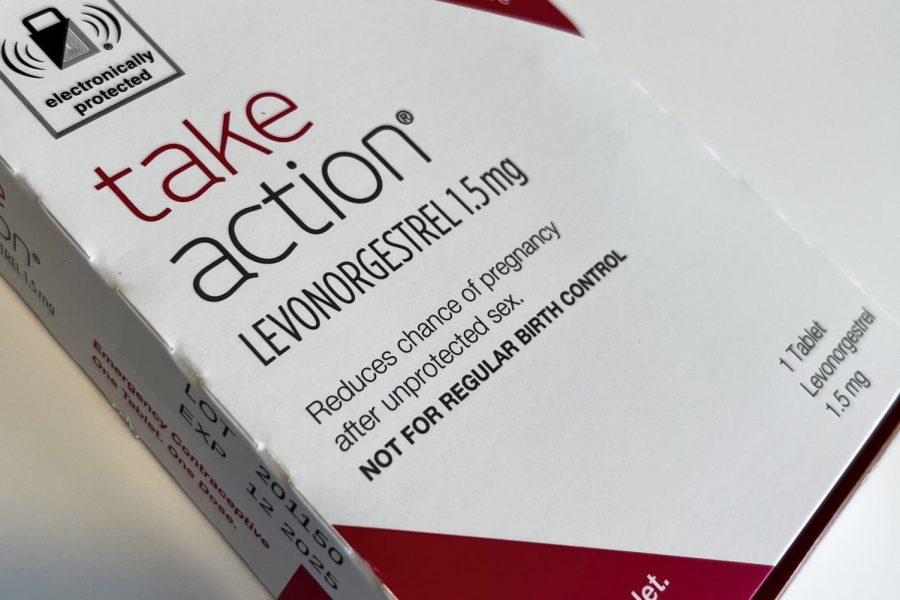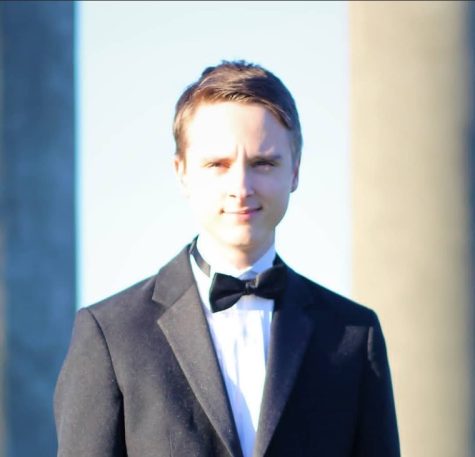ASWSU contraceptive vending machine still in progress
Unforeseen challenges push contraceptive machine’s completion date past October
Some of the items planned to be inside the machine are pregnancy tests, contraceptives such as Plan B and birth control.
March 6, 2023
WSU’s planned contraceptive vending machine, which was supposed to be completed Oct. 2022, is planned to be installed by the end of the year because of logistical concerns such as risk management.
Nikolai Sublett, ASWSU director of university affairs, said while they were not finished with the machine as fast as they wanted it to be, it is still 100% confirmed to be happening.
Sublett said the machine will be indoors on the bottom floor of the Compton Union Building. Some of the items planned to be inside the machine are pregnancy tests, contraceptives such as Plan B as well as over the counter medication such as Advil.
“[The machine will be] on the ground floor where the other vending machines are, so it’s in a private area but it’s accessible,” he said. “The legacy after me will be ‘what are we going to add next, what do students need next?’ It’s going to be ever growing.”
Sublett said some of what they have been working on in recent months have been dealing with risk management, putting out the purchase request for the machine and submitting a W9 form, which takes two weeks to be approved.
“My optimism hasn’t wavered because it’s still 100%, but you have to get approval from so many people just to order the machine,” Sublett said. “Now we’re basically just buying our own machine, finding a card reader that’s going to work with our machine and things of that nature.”
Until the end of October, Sublett had a very hands-on role, he said. At this point, the progress of the project is mostly in the hands of the administrators because they have to order the machine.
“There have been a lot of logistical hoops to jump through,” Sublett said. “WSU has never in history done a project like this because all of our current vending machines have been done by Coke.”
After the machine is installed, ASWSU will be able to make further changes to it by examining what products students are using and not using, he said. The next big step in the process at this point will be ordering the machine itself.
Sublett said while there is no set date for completion, his goal is that it will be finished before he graduates in the spring. He recommends anyone who has an idea of what they’d like to see change on campus to approach ASWSU.
“For anyone who’s curious if a student has an idea, an idea to make something better, start getting connected with people,” Sublett said.
One of the people who has helped with the project is Joel Schwartzkopf, Assistant vice chancellor for student health and wellbeing services.
“We have a lot of students from out of state who said ‘we’re worried about reproductive care and access to contraceptive products, especially the morning after pill and what can we do to expand access to that,’ that was I think the catalyst to that,” Schwartzkopf said.
Schwartzkopf said while Cougar Health Services has helped with placing orders for certain products, the project has been mostly student-run.
“I really got to give props to Nikolai because it was his idea and he’s championed it. You can already get Plan B at the Cougar Health pharmacy. If students have any insurance it doesn’t cost a dime,” Schwartzkopf said. “That’s why I think Nikolai and the team wanted to take it slowly and make sure they did it right, because it’s not about having any access, it’s about expanding access.”
The biggest benefits this machine will feature for students is an expansion of access to products that might already be available elsewhere, as well as helping students decrease the chances of an unwanted pregnancy, he said.
“We might just put some common over-the-counter medication in there, whatever people might need,” Schwartzkopf said. “We really appreciate how much student government has taken a hand in this.”











